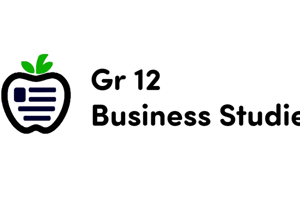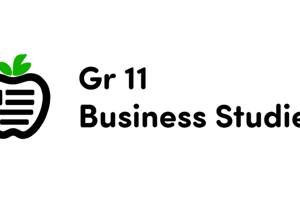Podcast
Questions and Answers
Razlozi učestvovanja u grupnoj diskusiji su:
Razlozi učestvovanja u grupnoj diskusiji su:
Svi raznorazni oblici upravljanja konfliktima mogu da se svrstaju u tri grupe:
Svi raznorazni oblici upravljanja konfliktima mogu da se svrstaju u tri grupe:
Konflikt smo ukratko predstavili kao afektivno-motivacioni proces koji pozitivno utiče na uspješno funkcioniranje tima.
Konflikt smo ukratko predstavili kao afektivno-motivacioni proces koji pozitivno utiče na uspješno funkcioniranje tima.
False (B)
Stvarni učinak = potencijalni učinak + gubici u procesu
Stvarni učinak = potencijalni učinak + gubici u procesu
Tim se može definirati kao radna grupa nastala u okviru organizacije sa ciljem da se obavi određeni zadatak u određenom vremenskom roku, uz punu saradnju i koordinaciju svih njegovih članova međusobno kao i tima sa vanjskim akterima.
Tim se može definirati kao radna grupa nastala u okviru organizacije sa ciljem da se obavi određeni zadatak u određenom vremenskom roku, uz punu saradnju i koordinaciju svih njegovih članova međusobno kao i tima sa vanjskim akterima.
Spoljašnji motivi su vezani za zadovoljstvo nastalo djelovanjem u određenim oblastima.
Spoljašnji motivi su vezani za zadovoljstvo nastalo djelovanjem u određenim oblastima.
Tipološki pristup - posmatra čovjeka kao ekonomsko biće kojem je plata osnovni motiv rada a spoljašnji motivatori, nagrađivanje ili kažnjavanje, osnovni pokretači zaposlenog na akciju.
Tipološki pristup - posmatra čovjeka kao ekonomsko biće kojem je plata osnovni motiv rada a spoljašnji motivatori, nagrađivanje ili kažnjavanje, osnovni pokretači zaposlenog na akciju.
Motivacija se definira kao proces izazivanja, usmjeravanja i održavanja naše aktivnosti radi dostizanja određenog cilja kojim se može zadovoljiti odgovarajuća potreba.
Motivacija se definira kao proces izazivanja, usmjeravanja i održavanja naše aktivnosti radi dostizanja određenog cilja kojim se može zadovoljiti odgovarajuća potreba.
Kada sagledamo karakteristike motivacije, razumljivo je da motivisano ponašanje usmjerava pažnju pojedinca na određene objekte i ciljeve, aktivira ulaganje napora u aktivnosti i održava tu aktivnost do postizanja cilja.
Kada sagledamo karakteristike motivacije, razumljivo je da motivisano ponašanje usmjerava pažnju pojedinca na određene objekte i ciljeve, aktivira ulaganje napora u aktivnosti i održava tu aktivnost do postizanja cilja.
Kod unutrašnjih motiva riječ je o motivima vezanim za ličnost pojedinca. U okviru ovih teorija javlja se kontrast između naglaska na kojim procesima?
Kod unutrašnjih motiva riječ je o motivima vezanim za ličnost pojedinca. U okviru ovih teorija javlja se kontrast između naglaska na kojim procesima?
Motivacija je najznačajniji aspekt upravljanja ljudskim resursima i treba mu konstantno poklanjati pažnju.
Motivacija je najznačajniji aspekt upravljanja ljudskim resursima i treba mu konstantno poklanjati pažnju.
Ekstremni oblik grupne polarizacije se naziva grupna zasljepljenost.
Ekstremni oblik grupne polarizacije se naziva grupna zasljepljenost.
Prednost velikih timova su:
Prednost velikih timova su:
Vrste grupa su:
Vrste grupa su:
Kada je privlačnost jaka, grupa se čvršće drži na okupu, veći je osjećaj sigurnosti, bliskosti i zajedništva. Taj pojam se naziva:
Kada je privlačnost jaka, grupa se čvršće drži na okupu, veći je osjećaj sigurnosti, bliskosti i zajedništva. Taj pojam se naziva:
Postoje pokušaji da se integrišu klasični i PEM model, odnosno posmatranje grupne dinamike iz ugla razvoja grupe kao i iz ugla izvođenja aktivnosti. Tako je predložen normativni model koji se sastoji od četiri faze:
Postoje pokušaji da se integrišu klasični i PEM model, odnosno posmatranje grupne dinamike iz ugla razvoja grupe kao i iz ugla izvođenja aktivnosti. Tako je predložen normativni model koji se sastoji od četiri faze:
Takmanov klasični model razvoja je nastao u vrijeme kada timovi kao posebna vrsta radnih grupa nisu bili aktuelni. Njegov model se odnosi na razvoj grupa koje nisu imale prethodnu strukturu. Faze razvoja takvih grupa su:
Takmanov klasični model razvoja je nastao u vrijeme kada timovi kao posebna vrsta radnih grupa nisu bili aktuelni. Njegov model se odnosi na razvoj grupa koje nisu imale prethodnu strukturu. Faze razvoja takvih grupa su:
Vrste timova su:
Vrste timova su:
Potencijalni učinak se odnosi na sve nepredviđene situacije koje narušavaju produktivnost, odnosno gubitke u procesu.
Potencijalni učinak se odnosi na sve nepredviđene situacije koje narušavaju produktivnost, odnosno gubitke u procesu.
IPO okvir (eng. input-process-outcome, pokretač-proces-ishod) služi kao model za izučavanje uspješnosti timova.
IPO okvir (eng. input-process-outcome, pokretač-proces-ishod) služi kao model za izučavanje uspješnosti timova.
Skupina predstavlja veliki broj ljudi zbijen na jednom prostoru koji je obuzet sličnim emocijama i usmjeren prema nekom cilju.
Skupina predstavlja veliki broj ljudi zbijen na jednom prostoru koji je obuzet sličnim emocijama i usmjeren prema nekom cilju.
U neformalnim grupama važe društvene norme ponašanja.
U neformalnim grupama važe društvene norme ponašanja.
Općeprihvaćena definicija grupe ne postoji. Pravi se razlika između skupine, grupe i mase.
Općeprihvaćena definicija grupe ne postoji. Pravi se razlika između skupine, grupe i mase.
Zajedničke karakteristike grupa i timova su:
Zajedničke karakteristike grupa i timova su:
Prva proučavanja liderstva u kontekstu organizacijske klime, identificirala su tri osnovna stila liderstva:
Prva proučavanja liderstva u kontekstu organizacijske klime, identificirala su tri osnovna stila liderstva:
Liderstvo i preduzetništvo su u bliskoj vezi po tome što proizilaze iz unutrašnjeg karaktera i integriteta vođe, ali se u primjeni razlikuju.
Liderstvo i preduzetništvo su u bliskoj vezi po tome što proizilaze iz unutrašnjeg karaktera i integriteta vođe, ali se u primjeni razlikuju.
Rezonantni lideri su lideri čiji postupci odudaraju od želja i osjećanja saradnika, te emocionalna klima nije stimulativna, a disonantni lideri su lideri čiji su postupci u skladu sa osjećanjima sljedbenika, te se svi zajedno nalaze u pozitivnoj emocionalnoj klimi.
Rezonantni lideri su lideri čiji postupci odudaraju od želja i osjećanja saradnika, te emocionalna klima nije stimulativna, a disonantni lideri su lideri čiji su postupci u skladu sa osjećanjima sljedbenika, te se svi zajedno nalaze u pozitivnoj emocionalnoj klimi.
Study Notes
Conflict Management in Group Discussions
- Various forms of conflict management can be categorized into three groups.
- Conflict is a process that positively affects team functioning, and its real impact is equal to potential impact plus process losses.
Team Definition and Motivation
- A team is a workgroup formed within an organization to achieve a specific task within a certain timeframe, with full cooperation and coordination among its members.
- External motivation is linked to satisfaction from working in specific areas.
- The typological approach views humans as economic beings, with salary as the primary motivator, and external motivators like rewards or punishment as the driving force behind action.
- Motivation is a process that triggers, directs, and maintains our activity to achieve a specific goal, satisfying a corresponding need.
- Motivated behavior directs attention to specific objects and goals, activates effort, and maintains activity until the goal is achieved.
Group Dynamics
- The extreme form of group polarization is called groupthink.
- Advantages of large teams include:
- Types of groups are:
- When attractiveness is high, the group is more cohesive, with a greater sense of security, closeness, and unity, which is called:
- There are attempts to integrate classical and PEM models, observing group dynamics from the perspective of group development and task execution.
Group Development
- The normative model consists of four phases:
- Tuckman's classical model of group development was created when teams as a specific type of workgroup were not yet prominent.
- His model relates to the development of groups without prior structure.
- Phases of group development in Tuckman's model are:
- Types of teams are:
Team Effectiveness
- Potential impact refers to all unforeseen situations that disrupt productivity, resulting in process losses.
- The IPO framework (Input-Process-Outcome) serves as a model for studying team success.
- A group is a large number of people gathered in one space, united by similar emotions and directed towards a common goal.
Leadership
- The first studies of leadership in the context of organizational climate identified three basic leadership styles:
- Leadership and entrepreneurship are closely related, as they stem from the inner character and integrity of the leader, but differ in application.
- Resonant leaders are those whose actions resonate with the desires and feelings of their followers, creating a positive emotional climate, while dissonant leaders are those whose actions are in line with the feelings of their followers, resulting in a positive emotional climate.
Studying That Suits You
Use AI to generate personalized quizzes and flashcards to suit your learning preferences.
Description
How well do you understand the concept of external motivation? Take this quiz to test your knowledge on how external factors such as rewards and recognition can influence our behavior and satisfaction in certain areas. Explore the different types of external motivation and learn how to effectively apply them in your personal and professional life. Start the quiz now!




